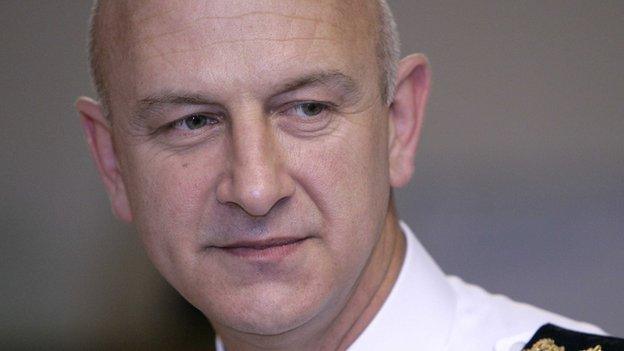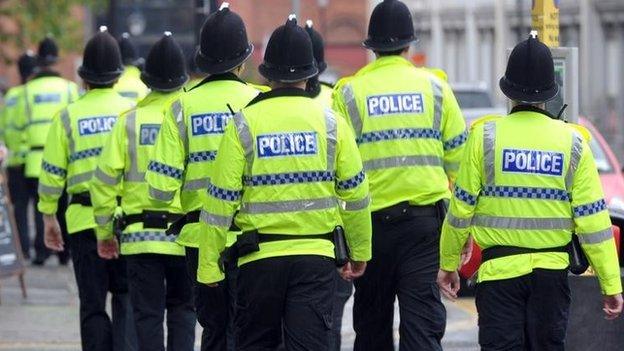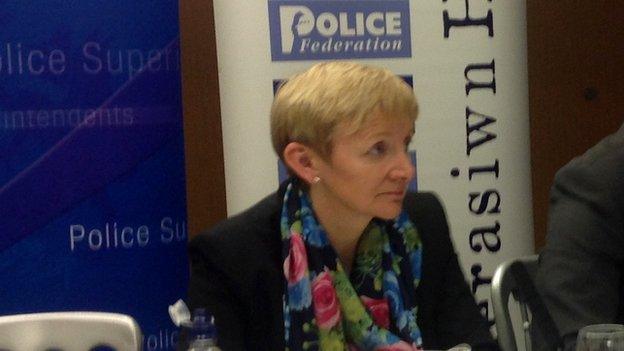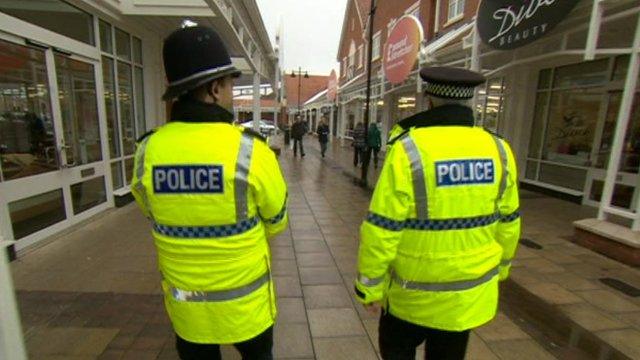Police crime figures 'dead in the water', says City of London police chief
- Published

City of London Commissioner Adrian Leppard
Crime figures compiled by police are "dead in the water", one of Britain's most senior police officers has said.
Commissioner of City of London police Adrian Leppard said police figures provided only a "small prism of the harm" to communities.
Victim-based surveys offer more insight into offending levels, he said.
But Chief Constable Jeff Farrar, national policing lead on crime statistics, said there was "a purpose" to gathering police crime data.
Mr Leppard made his comments at a crime statistics conference, which also heard claims from academics that official Crime Survey of England and Wales (CSEAW) statistics underestimate violent crimes against women by 70%.
'Repeat offences'
Professor Sylvia Walby, from Lancaster University, said statisticians "capped" the number of "repeat" offences at five per victim.
She said this had the effect of reducing reported levels of violence against women and domestic violence victims, because female victims were often targeted many times.
A peer-reviewed study carried out by Prof Walby suggested that without a cap, 45% of violent crimes would be against women.
The Office for National Statistics, which is responsible for the CSEAW, said it was analysing Prof Walby's findings with a view to changing the cap - which is designed to stop huge fluctuations in crime levels based on small numbers of victims.
Head of crime statistics, John Flatley, said: "If repeat offences were not capped, there is a risk that a small number of cases involving multiple attacks on the same person could end up skewing results, making it very difficult to spot trends in crimes."
The comments from Mr Leppard about the police figures are thought to be the strongest by such a high-ranking officer.
"Formal police-recorded crime I don't think has much value to us," Mr Leppard said, pointing out that there was 99% of under-reporting of economic crime.
Unreported crimes
Much of his force's information on fraud came from liaising with banks and businesses which often did not report the crimes to police, he said.
He called for victim-based surveys, such as the CSEAW, to be extended, pointing out that a move to include fraud and cyber crime in the survey this year would add three million offences to the figures.
Chief Constable Farrar, of Gwent Police, said there was "a purpose" to having police crime data, but he acknowledged that the figures were incomplete and there was a danger of "dysfunctional behaviour" in a culture of target-setting.
Lisa Harker, from the NSPCC, said the organisation had to send Freedom of Information Act requests to police forces in order to obtain data on child sex offences.
She said police collected information on the ages and gender of victims and alleged perpetrators, but did not routinely release it.
"Without the data we're left to guess as to what's really happening," she said.
- Published22 January 2015

- Published21 January 2014
- Published7 October 2014

- Published23 January 2014
